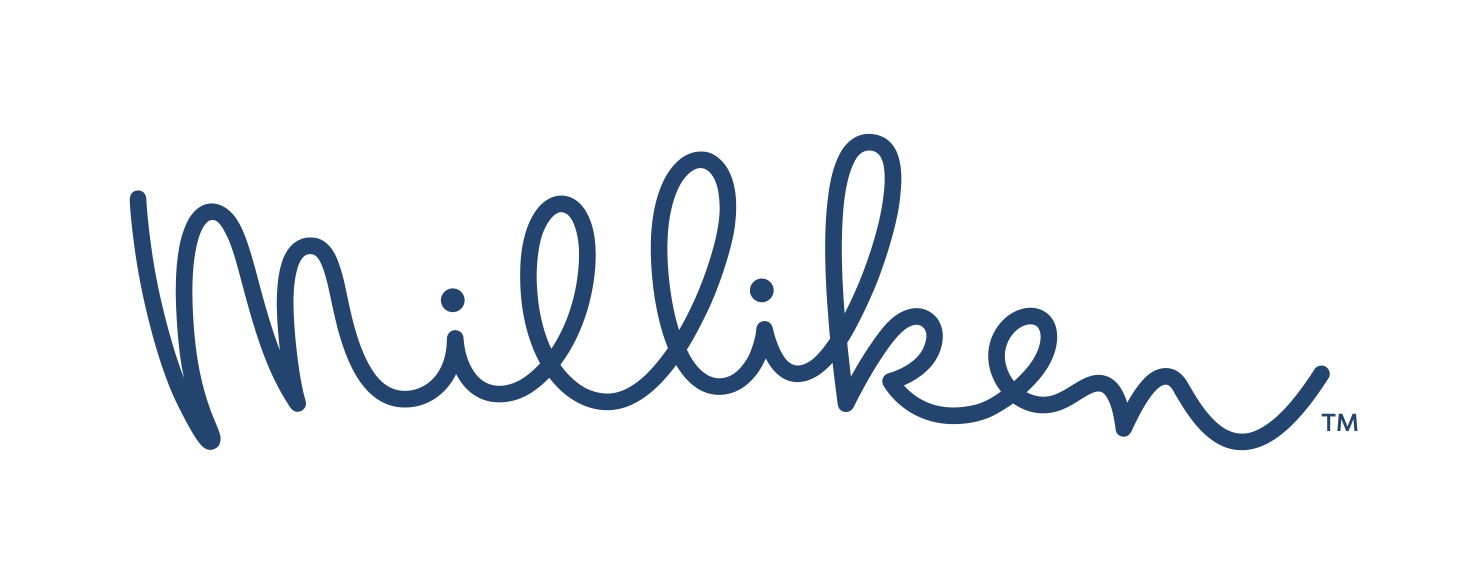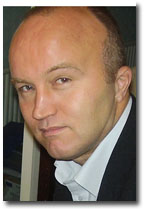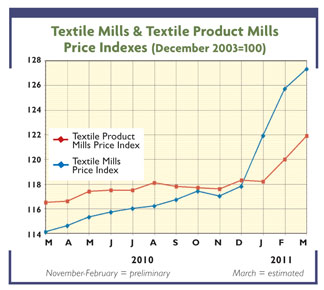ROSEVILLE, Minn. — April 19, 2011 — At a time when the U.S. is facing record unemployment, a
group of specialty fabrics manufacturers is engaging in everything short of a bake sale in
Washington, D.C. to draw attention to the latest fight for some of the last jobs still standing.
Their most recent free trade versus fair trade confrontation involves the Korea-U.S. Free
Trade Agreement (commonly known as KORUS) and the United States Industrial Fabrics Institute
(USIFI), a division of the Industrial Fabrics Association International, which represents nearly
2,000 member companies. USIFI is currently leading an educational campaign on the Hill to keep the
specialty fabrics industry’s U.S. factories open and save jobs which will be bartered away with the
terms of the KORUS agreement. Currently specialty fabrics represent a world market estimated at
$123 billion in 2010, $29 billion of that in the U.S.
Congressman Larry Kissell (NC-08), one of the specialty fabrics industry’s allies in
Washington, D.C., spoke with the USIFI group about putting a stop to KORUS. “No one feels the
effects of our nation’s trade policies more directly than American manufacturers, especially these
leaders of our textile industry,” said Kissell. “For far too long, bad trade deals and misguided
Washington policies have ravaged our economy, shipping jobs overseas and furthering our mounting
trade deficits.”
Specialty fabrics are a segment of the domestic textile manufacturing base that has not only
survived decades of bad trade policies and relentless import pressures but which now thrives. Also
known as industrial textiles or technical textiles, specialty fabrics keep first responders safe in
fire-resistant protection suits and anti-ballistic vests. The high-tech flexible materials also
protect the environment: They provide containment of toxic wastes, ensure quality drinking water
and prevent shoreline erosion. In addition, these multi-layered composite products are used in new
pavement technology to rebuild our nation’s vulnerable infrastructure, as well as in the
lightweight, ultra-strong fabrics deployed in life-saving airbags, and the shade provided in
playground structures that keep our children away from the harmful rays of the sun.
A group of 24 USIFI members met with Congressman Kissell and more than 45 other Congressional
offices on the Hill over several days to highlight the effects of U.S. trade policies on specialty
fabrics and on American manufacturing overall. These business and plant owners are doing the cold
call grunt work that is necessary to make the voice of the manufacturers (or “job providers”) heard
inside the Beltway. That voice is saying: “Stop signing free trade agreements that close our plants
and cause the loss of even more jobs.”
Kissell is unique in his keen understanding of what’s at stake: “No brand is better than Made
in the USA, and I will work to defeat any trade deal that offshores American jobs and hinders our
ability to better export our top-of-the-line goods. The Korea-U.S. Free Trade Agreement uses the
same flawed model of CAFTA and NAFTA, and simply isn’t right for the people of my district. I was
glad to hear directly from these industry leaders on what will best help them increase their
exports and create more American jobs.”
Said Rich Lippert, a member of the group from Glen Raven Technical Fabrics, LLC: “Working
with USIFI to meet with the elected officials has helped our company convey the importance of
defeating the Free Trade Agreement. Ultimately KORUS is not ‘free’ and if passed as written, will
mean the loss of jobs, not the creation of jobs.”
The USIFI group’s secondary message to Congressional leaders concerned the erosion of parts
of the Berry Amendment. Work is being done to ensure that language will be inserted into the law
which defines components of military spec tents. This effort is similar to the 2006 Berry Amendment
change in which the military uniform industry succeeded in spelling out non-textile uniform
components, requiring that these components, too, be domestically sourced.
Several USIFI members had never come to Washington D.C. to advocate for issues, but most of
the group was familiar with the process. USIFI designated “rovers” (experienced Hill people) to
help the newcomers, and according to Ehmke Manufacturing CEO Bob Rosania, “USIFI’s Lobby Days gave
us the unique experience of interacting directly with the Members of Congress whose votes have a
direct impact on our industry and businesses.”
USIFI member companies also joined representatives from the American Manufacturing Trade
Action Coalition (AMTAC) for a meeting to discuss the pending legislation important to the textile
and manufacturing industries, including both groups’ opposition of the Korea-U.S. Free Trade
Agreement; as well as their support of H.R. 679, the Berry Amendment Extension Act, which Kissell
reintroduced in January. The bill would permanently require the Department of Homeland Security and
all of its agencies to purchase and procure textiles made entirely in America.
“We were happy to start the day off by meeting with Congressman Kissell, a champion of U.S.
manufacturing, especially on issues that impact the U.S. textile industry,” said Auggie Tantillo,
Executive Director of AMTAC. “He is leading the fight in Congress to stop these bad trade deals
from devastating our manufacturing sector, and understands the importance of protecting American
workers. This Korean Free Trade Agreement will further jeopardize jobs and harm American companies,
and we’ll continue to do all we can to stop this unfair deal.”
USIFI’s Executive Director Ruth Stephens stresses the important impact her group’s
face-to-face meetings have: “It continues to be apparent that USIFI is a strong voice for the
industrial fabrics industry in Washington and that more can be done to educate and update the
government about this market segment. USIFI encourages its member companies to meet regularly with
their congressional representation. Legislators are willing to listen and are very approachable.”
USIFI has also engaged in a petition-signing drive to alert legislators to the negative
impact of KORUS and Representatives Howard Coble and Larry Kissell have circulated a letter to
their colleagues in Congress.
Jean Lineberger, General Manager, Brawer Technical Yarns, explained why she was participating
in USIFI’s march up the Hill: “A genuine life lesson is that we should all always take a stand on
issues that are important to us. Being a part of Lobby Days was the best possible way to
proactively show support for our industry, U.S. manufacturing, and engaging in the political
process.”
Graniteville Specialty Fabrics President James Egan says that the specialty fabrics industry
has been a victim of Washington’s trade negotiations because of a lack of awareness and
understanding of what the American industrial fabrics and technical textiles companies manufacture.
“The specialty textile industry can compete with anyone provided we have a level playing field. It
is our responsibility as leaders of the industry to educate, communicate, and fight,” Egan said.
With luck Congress and the White House will get the message and read the fine print before
signing off on the KORUS trade agreement before more U.S. specialty fabrics industry jobs are
bartered away in yet another zero sum game in the name of free trade.
Posted on April 26, 2011
Source: Industrial Fabrics Association International/PRNewswire







